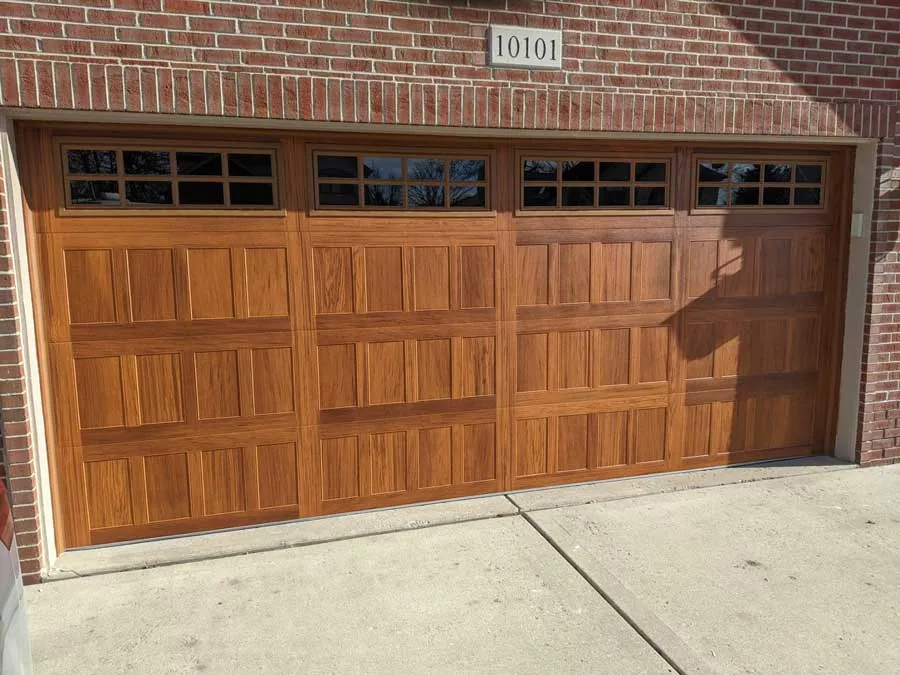Is your garage door not opening, closing halfway, or making loud, unpleasant noises every time it moves? You’re not alone. Garage doors are one of those home features we often take for granted—until something goes wrong. Like any other mechanical system, they require maintenance and occasionally need repairs.
Now, if you’re wondering how much fixing that squeaky, stubborn door is going to dent your wallet, this guide is here to help. We’ll walk through some of the most common garage door repairs, what causes these problems, and what you can realistically expect to pay.
Why Garage Doors Need Repairs
Your garage door isn’t just there for convenience; it’s a key part of your home’s security and curb appeal. Unfortunately, with daily use—sometimes multiple times a day—they take a lot of wear and tear. Add extreme weather, outdated parts, or improper installation into the mix, and sooner or later, problems are bound to arise.
But before you start panicking, rest assured that many garage door repairs are fairly simple and won’t require you to break the bank.
Key Causes of Garage Door Issues
Some common culprits behind garage door malfunctions include the following:
- Broken springs from excessive use or wear
- Damaged rollers or tracks due to debris or bent components
- Malfunctioning sensors or remotes, often caused by electrical issues
- Regular wear-and-tear on hinges, cables, or other moving parts.
Recognizing these issues early can save you money and stress in the long run.
Common Garage Door Repairs and Their Costs
Here’s the breakdown of the most common garage door repairs and what they typically cost. Keep in mind, every service provider might charge slightly different rates depending on your location, door material, and extent of damage.
1. Broken Garage Door Springs
Ah, the dreaded snap. If your garage door suddenly refuses to budge, a broken spring might be the issue. Garage doors rely on either torsion springs or extension springs to lift and lower. Springs are under immense tension, so eventually, they wear out.
Signs of a broken spring:
- Door won’t open or only opens a few inches.
- A loud bang (this is the spring snapping).
Cost:
Replacing one spring typically costs $150–$250, but your total may be higher if both springs need replacing (which is usually recommended to ensure balance).
2. Damaged Rollers or Tracks
Garage door rollers allow the door to glide smoothly up and down its tracks. Over time, rollers can crack, or the tracks can get bent, causing a noisy or stuck door.
Signs of roller or track issues:
- Squeaking, grinding, or jerky movements.
- Door seems to wobble or come off its tracks.
Cost:
Roller replacement costs about $100–$200; track repairs or replacements can cost $150–$300, depending on the extent of the damage.
3. Malfunctioning Garage Door Opener
If your garage door refuses to open or close when you press the button, your opener might be the problem. This could be due to a dead remote battery, outdated motor, or electrical issues.
Signs of opener issues:
- The wall switch works, but the remote doesn’t.
- The motor makes noise, but the door doesn’t move.
Cost:
Basic repairs for openers might range from $100–$200, but replacing the entire opener will cost closer to $300–$500.
4. Frayed or Broken Cables
Cables are what physically lift the door. Over time, these might fray, weaken, or completely snap due to tension. A garage door with faulty cables is dangerous, so it’s important to address this issue immediately.
Signs of cable issues:
- The door hangs crookedly or doesn’t operate smoothly.
- Visible wear and tear on cables.
Cost:
Cable replacement generally costs $150–$200.
5. Sensor Problems
Modern garage doors come equipped with safety sensors to prevent accidents. If the sensors are misaligned, dirty, or broken, your garage door might refuse to close as a safety precaution.
Signs of sensor problems:
- The door reverses when you attempt to close it.
- Blinking or flickering sensor lights.
Cost:
Fixing sensor alignment or replacement typically costs $75–$150.
6. General Maintenance
A little TLC can go a long way in avoiding expensive repairs. Routine maintenance such as lubricating parts, tightening hinges, or replacing small hardware (like brackets or screws) can keep your garage door operating smoothly.
Cost:
Expect to pay around $50–$75 for a maintenance tune-up.
When to DIY and When to Call a Pro
While some garage door repairs can be tackled on your own, others require professional help. Here’s a quick guide to help you decide:
- DIY-friendly fixes:
- Replacing remote batteries.
- Cleaning and aligning sensors.
- Lubricating moving parts like rollers or hinges.
- Call a pro for:
- Broken springs (the tension can be dangerous).
- Cable replacements.
- Electrical or motor issues.
Remember, safety always comes first. If you’re not comfortable with a repair—or if it involves any component under tension—don’t risk it.
Tips to Avoid Expensive Repairs
Prevention is always better (and cheaper) than cure. Here are a few tips to extend the life of your garage door:
- Perform regular inspections. Look for wear and tear every few months.
- Keep the tracks clean. Debris build-up can cause major issues.
- Lubricate the moving parts every six months.
- Schedule professional maintenance annually, even if everything seems fine.
By staying proactive, you can save yourself from costly surprises later on.
Keep Your Garage Door in Top Shape
Your garage door plays a vital role in your home’s functionality and security. While repairs are sometimes unavoidable, knowing the common issues and their typical costs can help you make informed decisions and avoid being overcharged.
If your garage door isn’t cooperating, don’t wait too long to act. Whether it’s a small tune-up or a major repair, a well-maintained door is essential for hassle-free daily use.
Have questions about garage door repairs or maintenance? Drop a comment below—we’d love to help!

